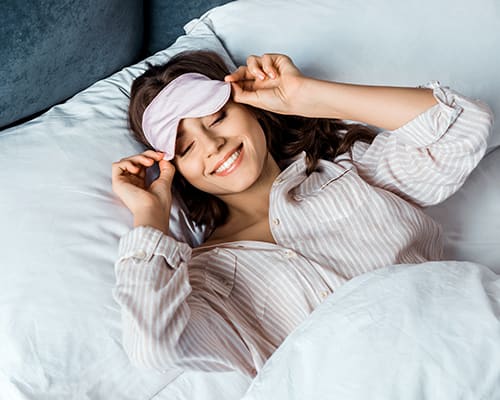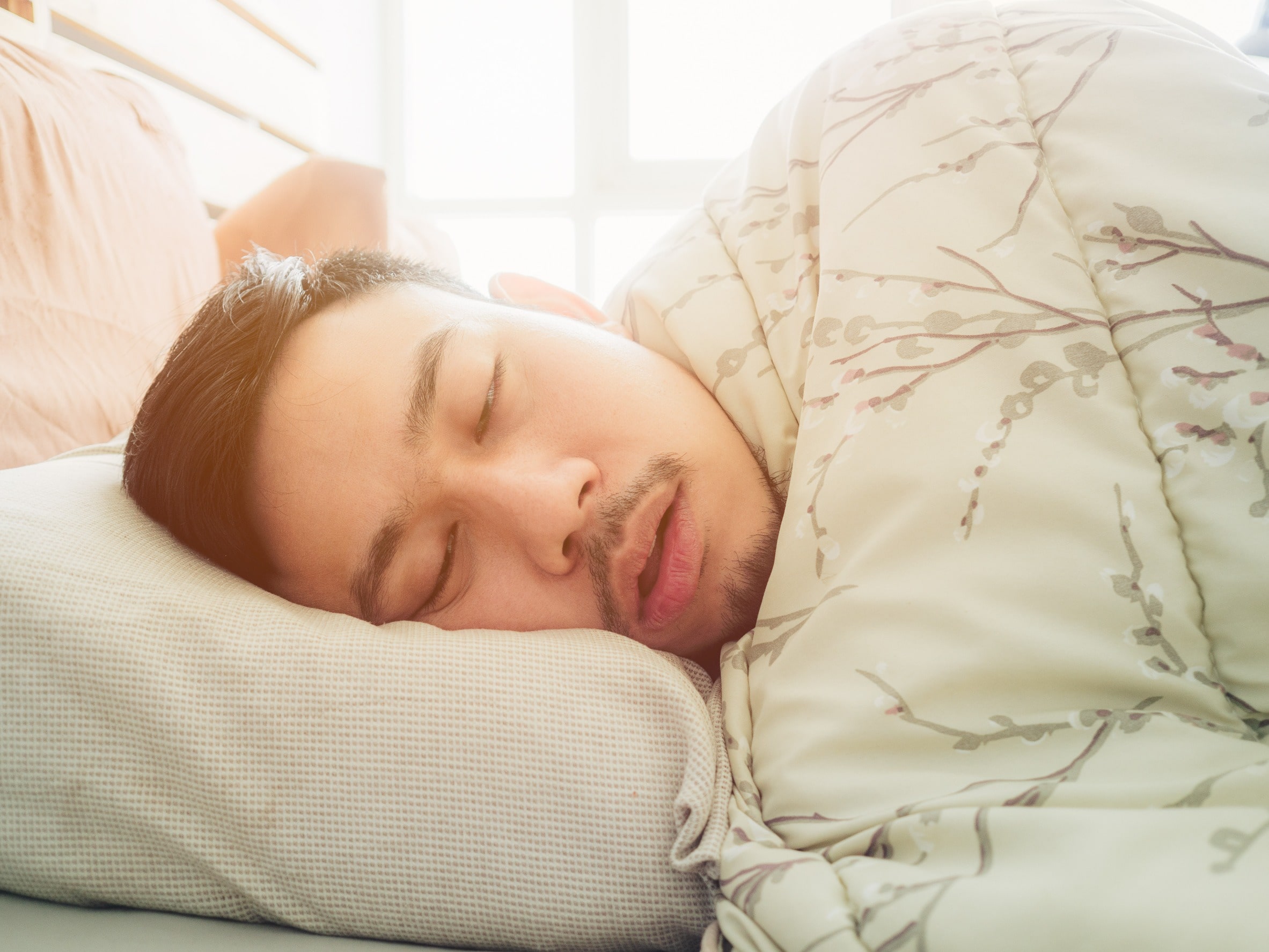Reliable Treatment Solutions for Taking Care Of Rest Disorders and Enhancing Peaceful Sleep
In the realm of health care, the administration of sleep disorders and the mission for restful sleep are critical parts of total wellness. As we browse the elaborate landscape of sleep disorders and look for to boost our sleep experience, a much deeper understanding of these treatment remedies may hold the trick to opening an extra rejuvenating and fulfilling restorative journey.
Cognitive Behavior Modification for Insomnia (CBT-I)
Cognitive Behavioral Therapy for Insomnia (CBT-I) is a structured, evidence-based treatment strategy that concentrates on attending to the underlying variables contributing to sleep disruptions. This type of therapy aims to customize habits and ideas that exacerbate sleeplessness, ultimately advertising healthy sleep patterns. CBT-I commonly entails several key elements, including cognitive treatment, sleep constraint, stimulus control, and sleep hygiene education and learning.
Cognitive therapy helps individuals identify and change unfavorable idea patterns and beliefs concerning rest that may be preventing their ability to fall or remain asleep. Sleep limitation includes limiting the quantity of time spent in bed to match the individual's real rest period, therefore enhancing sleep effectiveness (sleep therapy). Stimulation control techniques help develop a solid association between the bed and rest by encouraging people to go to bed only when drowsy and to avoid participating in stimulating tasks in bed
Moreover, rest hygiene education focuses on establishing healthy sleep routines, such as keeping a constant rest timetable, creating a relaxing going to bed regimen, and maximizing the rest setting. By attending to these elements thoroughly, CBT-I offers an effective non-pharmacological intervention for handling sleep problems and enhancing general sleep quality.
Sleep Hygiene Practices
Having actually established the foundation of cognitive restructuring and behavior modifications in dealing with sleeplessness through Cognitive Behavioral Treatment for Sleeping Disorders (CBT-I), the focus currently shifts towards exploring vital Sleep Hygiene Practices for preserving optimum sleep quality and total health.
Rest health techniques incorporate a series of routines and environmental elements that can significantly impact one's capacity to sleep and remain asleep throughout the night. Regular rest and wake times, developing a relaxing going to bed routine, and optimizing the rest setting by maintaining it dark, silent, and cool are crucial parts of great rest health. Limiting exposure to displays prior to going to bed, preventing stimulants like high levels of caffeine near bedtime, and engaging in normal physical activity throughout the day can also advertise better sleep quality.
Additionally, exercising relaxation strategies such as deep breathing exercises or meditation before bed can aid relax the mind and prepare the body for sleep. By integrating these rest health practices right into one's everyday routine, people can develop a healthy and balanced sleep pattern that supports restful rest and general health.
Leisure Techniques and Mindfulness
Implementing leisure strategies and mindfulness practices can play an essential role in cultivating a sense of calm and promoting quality sleep. Furthermore, assisted images can help deliver individuals to a peaceful location in their minds, helping in stress reduction and improving rest high quality.
Mindfulness methods, get more such as reflection and yoga, are also efficient in promoting leisure and boosting rest. Mindfulness encourages individuals to remain present in the minute, letting go of bother with the past or future. By including these practices right into a going to bed regimen, people can signify to their bodies that it is time to take a break and prepare for sleep. In general, incorporating relaxation strategies and mindfulness methods can substantially add to taking care of sleep conditions and boosting general rest top quality.

Medicine Options for Rest Disorders
After discovering relaxation strategies and mindfulness techniques as non-pharmacological treatments for enhancing sleep top quality, it is necessary to take into consideration medicine options for individuals with sleep disorders. In instances where lifestyle modifications and treatment do not provide sufficient alleviation, medication can be a valuable tool in managing sleep disruptions.
Generally prescribed drugs for sleep problems consist of benzodiazepines, non-benzodiazepine hypnotics, antidepressants, and melatonin receptor agonists. Antidepressants, such as trazodone, can be beneficial for individuals with co-occurring anxiety and rest disturbances - cognitive behavioral therapy for insomnia (CBT-I).
It is crucial for individuals to talk to a doctor to determine the most ideal medication choice based upon their details rest problem and medical background.
Light Therapy for Circadian Rhythm Policy
Light therapy, additionally called photo-therapy, is a non-invasive treatment technique made use of to manage circadian rhythms and improve site link sleep-wake cycles. This treatment includes direct exposure to intense light that mimics natural sunlight, which assists to reset the body's interior clock. By revealing people to certain wavelengths of light, typically in the morning or evening depending on the preferred effect, light therapy can efficiently adjust the body clock to promote wakefulness throughout the day and improve peaceful sleep in the evening.
Research sleep related eating disorder study has actually shown that light treatment can be specifically advantageous for individuals with body clock problems, such as delayed sleep phase syndrome or jet lag. It can additionally be valuable for those experiencing seasonal depression (SAD), a sort of anxiety that normally happens throughout the cold weather when all-natural light exposure is lowered. Light treatment is typically well-tolerated and can be made use of combined with various other therapy approaches for rest disorders to optimize end results and boost general rest high quality.
Verdict
In final thought, effective therapy services for taking care of rest problems and boosting restful rest include Cognitive Behavior modification for Sleeping Disorders (CBT-I), sleep health techniques, relaxation methods and mindfulness, medicine alternatives, and light therapy for circadian rhythm guideline. These methods can aid people enhance their sleep high quality and general well-being. It is essential to seek advice from a doctor to determine the most ideal technique for attending to rest concerns.
As we browse the intricate landscape of rest conditions and seek to boost our rest experience, a much deeper understanding of these therapy options may hold the trick to opening an extra relaxing and meeting restorative trip.
Sleep constraint involves restricting the amount of time spent in bed to match the individual's real rest period, thereby boosting rest performance. Regular rest and wake times, creating a relaxing going to bed regimen, and optimizing the sleep setting by keeping it dark, silent, and cool are essential elements of excellent sleep health. Light therapy is usually well-tolerated and can be used in combination with other therapy techniques for rest disorders to maximize results and boost overall sleep top quality.
